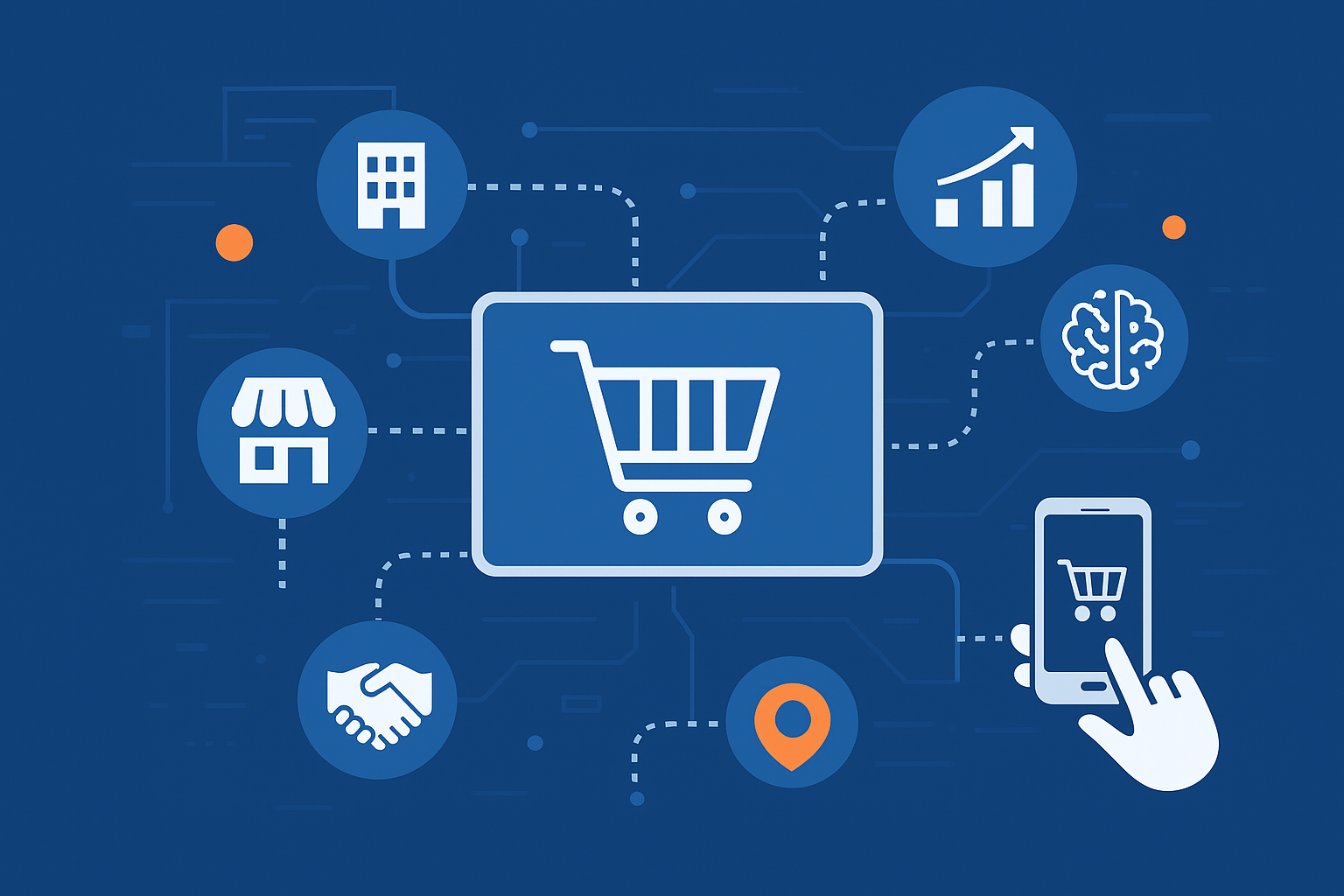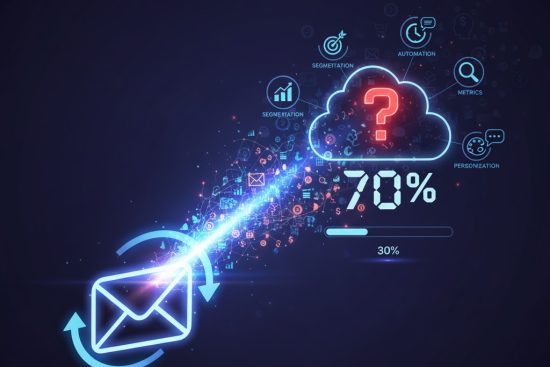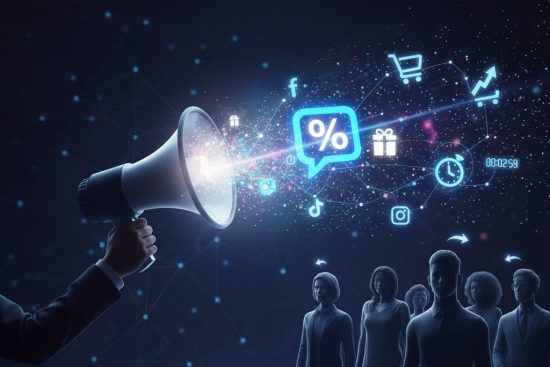
Introduction
B2B (business to business) e-commerce is undergoing an unprecedented transformation. Far from being a secondary channel, it has become the backbone of many industries, driven by digitization, automation and new business buying expectations.
In this blog we will explore the future of B2B ecommerceThe company's main trends and how companies can prepare themselves to take full advantage of this evolution.
Table of Contents
1. Total digitization of purchasing processes
In the future, manual processes will become obsolete. B2B ecommerce will move towards full digitization:
24/7 online ordering without depending on a commercial agent.
Self-management panels where customers can download invoices, track orders and manage returns.
Dynamic digital catalogs which are updated in real time according to stock and prices.
Example: Companies such as Alibaba and Amazon Business are already leading this model, offering B2B buyers an experience almost identical to that of any consumer, but with advanced features such as volume discounts or integration with ERP systems.
2. Artificial Intelligence and Automation in B2B
The AI and automation will not be an add-on, but the foundation of the future of B2B ecommerce:
Predictive recommendations: suggest products based on purchase history and industry patterns.
Smart pricing: algorithms that adjust prices according to demand, season or customer profile.
Advanced virtual assistants: chatbots that not only answer questions, but also negotiate discounts and generate quotes in seconds.
Back-office automation: less human error and more efficiency in inventory, invoicing and logistics.
Example: In the industrial sector, AI applied to digital catalogs reduces quotation times of days to minutesaccelerating sales cycles.
To learn about the broader trends impacting digital marketing, read our article on. Digital marketing trends 2025
3. Hyper-personalized experiences
The future of B2B ecommerce will focus on offering unique experiences for each customer. This means showcasing:
Catalogs adapted to your sector.
Personalized payment terms.
Exclusive promotions based on purchase history.
The personalization will be key to building customer loyalty and increasing lifecycle value in the B2B environment.
4. Mobile B2B e-commerce
Mobile usage in B2B is a reality: more than 70% from buyers consult prices and suppliers from their smartphones before making decisions.
In the future:
The B2B mobile apps will include real-time notifications about stock, shipments and offers.
The processes of mobile payment (business wallets, instant transfers) will be the norm.
The mobile-first design will no longer be optional: anyone who does not optimize for mobile will be left out of the competition.
Example: Logistics companies already allow their customers to track cargo and pay invoices from an app, eliminating downtime.
70% of B2B buyers already conduct part of the buying process from a mobile device. In the near future, mobile platforms must be fully optimized for mobile deviceswith applications and portals that allow quick decisions to be made anywhere.
5. Integration with B2B marketplaces
Marketplaces will be the highway to B2B e-commerce:
Immediate access to global customers.
Increased brand visibility in industries that were previously difficult to enter.
Possibility to compete not only on price, but also on service and trust.
Example: Marketplaces specialized in health, technology or industrial parts allow medium-sized companies to have the same reach as global corporations.
Specialized marketplaces will continue to grow as a space where suppliers and buyers meet directly.
Companies that adopt this strategy will have more visibility and access to global customers.
6. Digital security and trust
With digitization comes risk. The cybersecurity will be a strategic priority:
Implementation of advanced encryption and safety certificates.
Use of multifactor authentication (MFA) to prevent unauthorized access.
Compliance with international regulations (such as GDPR in Europe or ISO 27001).
The future of B2B ecommerce will depend to a large extent on build trustCompanies will only work with suppliers that protect their information and operations.
With the growth of B2B ecommerce, cybersecurity risks are also increasing. The future of the industry will depend on the implementation of advanced digital security systemsThe company's solutions include multi-factor authentication, data encryption and compliance with international regulations.
7. Sustainability and responsible trade
A growing trend is the digital sustainability:
B2B platforms that report on the carbon footprint of products.
Preference for suppliers that use green logistics or recyclable packaging.
Companies that measure their social and environmental impact in digital processes.
This will not only be a competitive advantage, but a requirement for large buyers.
Ready to prepare your company for the future of B2B ecommerce?
At ClickPanda we offer you scalable, secure and designed technology solutions.
Conclusion
The future of B2B ecommerce is not simply an extension of what we see in B2C, but an ecosystem of its own with unique challenges and opportunities. Digitalization, AI, security and sustainability will lead the way to more agile, global and strategic commerce.
Companies that anticipate and embrace these trends will be poised to lead in the coming years.








